Home » Jazz Articles » Interview » McCoy Mrubata: The Doyen of South African Jazz
McCoy Mrubata: The Doyen of South African Jazz
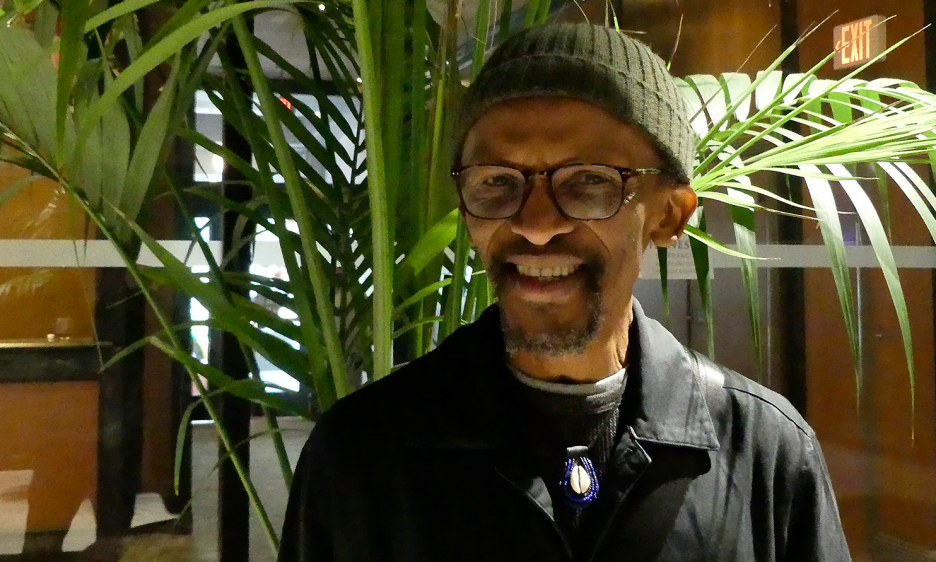
Courtesy Harry S. Pariser
McCoy Mrubata
saxophoneb.1959
This April, Mrubata, accompanied by his friend and collaborator jazz guitarist
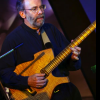
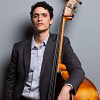
Noah Garabedian
bass, acoustic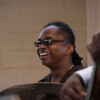
Deszon Clairborne
drumsAll About Jazz: Tell us about growing up in Langa, South Africa.
McCoy Mrubata: Growing up in Langa was a great experience in a very vibrant township. Music was all over the place. It was a very involved community with a plenty of sports and arts activities. There was a big band that used to rehearse across from where my grandparents lived.
In South Africa, children are frequently raised by their grandparents because the parents are separated for work or the father decided to take a hike and get another wife. So there were a lot of children growing up with their grandparents, and it was the case with me. I heard the big band music of

Count Basie
piano1904 - 1984

Duke Ellington
piano1899 - 1974
On one side of my grandparents' place a group of traditional healers held forth, and the African Zion Christian Church was on the other side. The traditional healers sang to the accompaniment of African drums. It was loud, but people didn't care about noise: They'd just go with the flow. On the other side, the Zion Christians also sang loudly and would play their drums in a fashion similar to that of the traditional healers.
So I absorbed these sounds growing up.? It was a very vibrant culture. In 1973, when I was 13, I joined a marching band. And I wanted to get ahold of a bugle. Simply because one of my uncles had a

Louis Armstrong
trumpet and vocals1901 - 1971
At that time my life revolved around being involved with the struggle, attending rallies, meetings, and this and that. The nun's schooling also afforded me time for my other passions including boxing. I was an amateur boxer from the age of ten, and I also loved drawing, I created sketches, still lifes and portraits at the time. I went back to art and drawing with a serious intent. At the time, my mom had a house in another township called Guguletu, and I had a larger room than my friends. So they used to come to my room and we would frequently have painting sessions. In fact, my two daughters take after me, and they are very good at art. One of my daughters, Noma did the artwork for my latest album.
One of my artist friends, Moekets, would play the penny whistle during breaks. One day he left it behind. I picked it up and played it. I thought "What is this? It is beautiful!" As I was blowing, I thought "Wow, this is great." I fell in love with it and that day the drawing took a nose dive, and I was hooked on playing the penny whistle. In 1978, my mom bought me a flute, and, six months after that, I joined a band called Fever. For the audition, I brought along a

Hubert Laws
woodwindsb.1939

Bobbi Humphrey
fluteb.1950

Herbie Mann
flute1930 - 2003
AAJ: How did your change from playing flute to making the saxophone your instrument come about? How did you come to play jazz?
MM: Fever played Top 20 and contemporary jazz music, which was mainly American. In South Africa we are familiar with all varieties of American music and cinema. To this day, the media bombarded us with Western, especially American, music, as opposed to local music. In 1980, I had to add tenor saxophone to my mix, as our local music scene was inundated with horns; the repertoire was composed of music of

Earth, Wind & Fire
band / ensemble / orchestra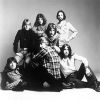
Chicago
band / ensemble / orchestrab.1967
AAJ: Tell us about your time playing with
 "
data-original-title="" title="">Hugh Masakela.
"
data-original-title="" title="">Hugh Masakela. MM: Oh, it was fun! It was an experience. I remember being in New Orleans. And I saw " data-original-title="" title="">Terrence Blanchard,

Donald Harrison
saxophone, altob.1960
Neville Brothers
variousAAJ: How about your time with Lucky Dube?
MM: I spent almost two years with him. Just like Hugh Masakela—very popular. We toured the States and Europe, the South Pacific islands. I missed out on doing Sunsplash in Jamaica with him. I never got to go there with him.
AAJ: Tell us about your experiences in the Congo.
MM: I went both to the DRC first and then Congo (Brazzaville) later. I come from South Africa. South Africa might be a "Third World" country, but it is just like America. There are trains. Everything runs. World class. Top notch.
MM: So in the two Congos, I found it a sad sight to see poor people, some of whom were sleeping under their stands and tables at the open markets. They all appeared to be fit and were mostly trim. I never saw an overweight person. In fact there was an overweight South African backup singer with us, and the locals followed her around cheering her, calling her "Big Mama." They had rarely seen an overweight person.
AAJ: Can you tell us how you came to write your compositions?
MM: I wake up with ideas every day. When I get inspired, I record voice memos. Back in the day, I would always carry a Sony Walkman. I would work on ideas, and then take the ideas to my band. Also, as a musician who was not officially trained, I'm not good at playing chord progressions. So I ask my pianist for help. Because with the music, you have to have a good command of harmony and basic chords. That's where my band mates come in. I've been co-writing songs with my band. Producers, writers, co-workers. I love teamwork.
AAJ: What is the performing and recording situation like in South Africa for musicians?
MM: Many jazz venues are popping up in Johannesburg, Cape Town and elsewhere. The musicians are getting better and better. The young ones?are really great; we have jazz programs now in our higher institutions. This is all thanks to

Darius Brubeck
pianob.1947
Rene McLean
b.1946AAJ: How do you see South African jazz intercepting with local musical influences and traditions?
MM: Our music is very distinct and diverse. In my music, you may sometimes hear the rhythms of the Xhosa (the tribe to which I belong) and other influences.?American music plays a huge role in our music as it develops. This is simply because we hear it all the time on the radio stations and combine it with our traditional music.
AAJ: How do you view the relationship between music and politics in South Africa?
MM: During the struggles, as during the Apartheid years, music and musicians played an enormous role. Musicians were used to promote the cause and convey political messages to the masses. We also played at political rallies.
These days the focus is more on imploring the current government to get their act together. As much as we now have freedom, there's still poverty, and the gap between rich and poor is widening.
Tags
Interview
McCoy Mrubata
Harry S. Pariser
South Africa
Johannesburg
Gary Wittner
Noah Garabedian
Deszon Clairborne
Count Basie
duke ellington
Earth Wind and Fire
Chicago
LTD
The Crusaders
Hugh Masakela
Terrence Blanchard
Donald Harrison
Neville Brothers
Lucky Dube
Comments
PREVIOUS / NEXT
Support All About Jazz
 All About Jazz has been a pillar of jazz since 1995, championing it as an art form and, more importantly, supporting the musicians who make it. Our enduring commitment has made "AAJ" one of the most culturally important websites of its kind, read by hundreds of thousands of fans, musicians and industry figures every month.
All About Jazz has been a pillar of jazz since 1995, championing it as an art form and, more importantly, supporting the musicians who make it. Our enduring commitment has made "AAJ" one of the most culturally important websites of its kind, read by hundreds of thousands of fans, musicians and industry figures every month.
Go Ad Free!
To maintain our platform while developing new means to foster jazz discovery and connectivity, we need your help. You can become a sustaining member for as little as $20 and in return, we'll immediately hide those pesky ads plus provide access to future articles for a full year. This winning combination vastly improves your AAJ experience and allow us to vigorously build on the pioneering work we first started in 1995. So enjoy an ad-free AAJ experience and help us remain a positive beacon for jazz by making a donation today.

Johannesburg
Concert Guide | Venue Guide | Local Businesses
| More...









 Buy Now
Buy Now





















